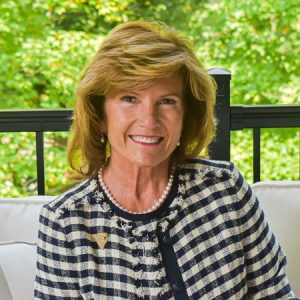The West Virginia University Foundation is in a strong financial position to carry out its mission to support the University’s students, but President and CEO Cindi Roth sees growing needs in the coming years requiring new investments.
Following the second-highest year for Foundation fundraising on record, Roth detailed plans for an upcoming multi-year campaign, designed to maximize charitable support to continue to provide services to the University, its students and affiliated organizations, during Friday’s Board of Governors meeting.
“We’re fundraising for WVU’s future,” Roth said. “It’s vitally important to address issues of student success along with health and wellness as we head into a time when more students will be counting on us.”
To bring WVU in line with the State’s new Higher Education Funding Formula, an outcomes-based formula created in coordination with the West Virginia Legislature and the state Higher Education Policy Commission, BOG members approved separate weighted frameworks for the Morgantown, Keyser and Beckley campuses.
Overall, the formula will allow WVU to better focus on addressing student needs at ground levels.
Nearly a month into the start of the fall semester, both student and faculty success is being emphasized as part of the ongoing academic transformation process.
Maryanne Reed, provost and vice president for academic affairs, detailed initiatives focused on improving student retention, graduation rates and academic advising while also highlighting new support for first-generation college students along with additions to mental health services.
“The student experience isn’t just about what happens in the classroom,” Reed added. “It’s also about helping students prepare for careers and job opportunities after graduation.”
Additionally, the University is working on a new in-house budget model and educating academic leaders, faculty and staff members about how the model will work.
“We believe this new model will incentivize the colleges — and eventually the academic departments — to lead their own transformation efforts that will help to position their units and the University for success in the future,” Reed said.
During the meeting, Rob Alsop, vice president for strategic initiatives, provided a broad overview of transformative steps taken in non-academic departments — among them Talent and Culture, Information Technology Services, Finance, Auxiliary and Business Services, University Police and Sustainability — during the past several years.
The annual faculty report highlighted achievements in research, service to communities across West Virginia and continued efforts to improve the classroom experience across the WVU System.
On the list of approved capital projects was renovations at Chitwood Hall, sewer and water improvements at Jackson’s Mill, turf replacement at the Student Recreation Fields and a WVU Research Park real estate transaction. Several buildings were renamed, including Field Hall, the new moniker for the former Chambers College building.
A list of BOG Rules previously posted for public comment received BOG approval. However, following public input, a second notice of proposed rulemaking was approved for BOG Rule 1.4 — Ethics, Conflicts of Interest and Outside Consulting Arrangements. Another 30-day public comment period begins Monday (Sept. 12) and extends through Oct. 12 at 11:59 p.m.
Friday’s meeting was the first for recently appointed Board members Susan Lavenski, CEO, Charles Ryan Associates, and Paul Mattox, business development manager, E.L. Robinson Engineering. Their terms run through 2026.
Also attending her first meeting as an ex-officio Board member was Chloe Hernandez, Student Government Association president, who will serve for one year.The next regular BOG meeting is scheduled for Nov. 11.


